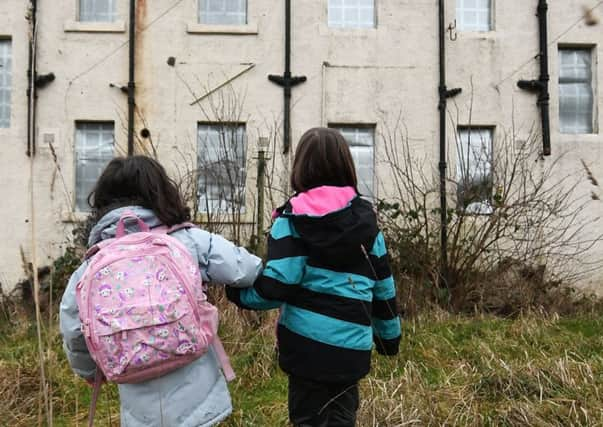Development of children in deprived areas twice as likely to raise issues


According to analysis published by ISD Scotland of its 27-30 month health review, 22 per cent of children from the poorest areas had a concern raised about their development.
In the review, health visitors were asked to assess a number of areas of development including speech and communication, problem solving, personal and social skills, and behavioural development.
Advertisement
Hide AdAdvertisement
Hide AdJust over 20 per cent of children in the most deprived areas were recorded as having at least one developmental concern, with speech, language and communication or emotional or behavioural issues, noted as being the most pronounced.
This compares to less than 10 per cent of children in the least deprived areas recorded as having any concerns over their development. The overall number of children recorded in the study as having a concern raised over their development has decreased since the health review was first introduced six years ago.
Scottish Labour MSP Monica Lennon said: “Nicola Sturgeon promised Scotland’s children the best start in life but instead poverty is increasing and is harming the life chances of Scotland’s poorest children.
“These startling poverty-related health inequalities are failing children.
“Scottish Labour shares the Scottish Government’s aspiration for Scotland to be the best country to grow up in so we are bitterly disappointed that the ambition is not backed up with investment in children and young people.
“The SNP government has failed to tackle poverty-related health inequalities after over a decade in power.”
In 2013-14, the first year of the review, a total of 19 per cent of children from 43,102 reviews had been recorded as having had concerns raised.
This had dropped to a total of 15 per cent of 50,600 children in the latest figures for 2017-18.
Advertisement
Hide AdAdvertisement
Hide AdA Scottish Government spokeswoman said: “We welcome these figures and acknowledge the benefit of having a means to identify issues at an early age and put support in place. The fact 29 per cent of children who were looked after were more likely to have a developmental concern recorded against 15 per cent of non-looked after children is not unexpected. It reflects the broader vulnerability of this group to adverse childhood experiences.”